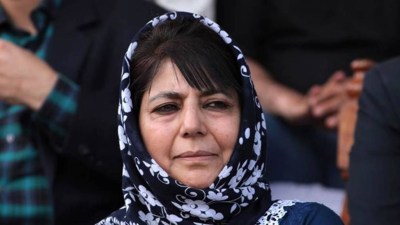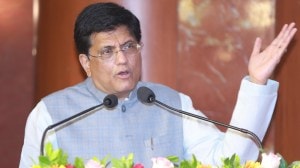When journalists fix cricketers
For some time now the Indian cricket team has been made to carry the burden of a frustrated, unfulfilled and difficult-to-please fan follow...

For some time now the Indian cricket team has been made to carry the burden of a frustrated, unfulfilled and difficult-to-please fan following. When the team wins, victory is invested with a larger meaning. Indian cricket is then portrayed as a symbol of successful secularism, or as a model of team-work for our politicians to follow. When the team loses, it is rarely seen as a purely cricketing defeat. Recriminations tend to be loud and long, whether conducted in newspaper columns or through coffee-house conversations. Some see in defeat the absence of a unifying religious-cultural ethos, such as Islam is believed to provide one of our opponents or Hindutva might come to provide for us. These are the hopeful ones, for the more general reaction is to see loss on the field as a metaphor for our failure as a nation. India, it is said in despair, will not stay united, will never become an Asian Tiger and will never win the World Cup again.
Indian cricket fans will believe the worst of their players. What else explains the alacrity with which allegations about players throwing matches have gained such swift currency? The claims were originally made in a news weekly, which offered two incontrovertible facts. The first is that fans bet large sums on matches; the second, that batsmen sometimes score a duck and bowlers sometimes take none for plenty the reporters forgot to add that the same players sometimes score centuries or take six wickets. The disclosure8217; of these two self-evident facts is enough for one leading newspaper to run an article suggesting that the Indian team be disbanded.
Is there any connection between large-scale betting and failures on the field? We are offered as evidence8217; the claim made by Manoj Prabhakar that he was offered money by a colleague to throw a match. Prabhakar is known to be a bitter man, one whose exclusion from the Indian team was followed by a foredoomed and pathetic attempt to enter politics. Pressed to provide names, he has retreated. In any case, it would take more than one player to fix a match. Unlike soccer, where a goalkeeper can decide a game, it would take the consent and co-ordinated effort of at least half the team for it to lose a game it would otherwise have won.
Some Indians might believe that half the team is indeed guilty, but not those who have played any kind of serious cricket themselves. I have for many years been associated with one of Karnataka8217;s top clubs, a team that has produced two international cricketers and dozens of Ranji Trophy stars. I have watched how boys of 14 and 15 join our club, and in years of hard practice and skill development make the progression through school and college cricket to the big league. The world of Indian cricket is fiercely contested, and at all levels over-populated. Would a man or boy who has painfully climbed the steps of the ladder throw it away at the behest of a Mumbai satta vala?
Many of us seem ready to condemn our cricketers on the basis of allegations that are on the evidence thus far offered unfounded and almost certainly untrue. Should we not instead look inwards, to wonder whether we, as a nation, are simply asking too much of men who shave once a week and whose sole skills are with bat and ball? In a recent television interview, Rahul Dravid was asked to remember that 8220;eight hundred million Indians are with you8221;. They are with him now, when he is batting supremely well, but thousands or millions of them including, I think, that interviewer will turn on Rahul if he turns out, as any batsman is allowed to do, a string of low scores. Why should Rahul be reminded of how many are watching him and with what expectations? Why cannot we simply allow him to play his game?The Indian cricket team has some very fine players, but it is, on the whole, one of the middle-ranking teams of world cricket. In the order of things it must win as often as it loses, to teams that are superior on the day or superior generally. To those who accuse our cricketers of corruption I would offer them a choice of bats and pads, and also of opponents. Let them, if only for an over, face Waqar Younis or Curtly Ambrose or Alan Donald. That will spell the end of cover stories and leading articles on match-fixing.
The writer8217;s books include Wickets in the East8217; and Spin and Other Turns8217;
- 01
- 02
- 03
- 04
- 05































